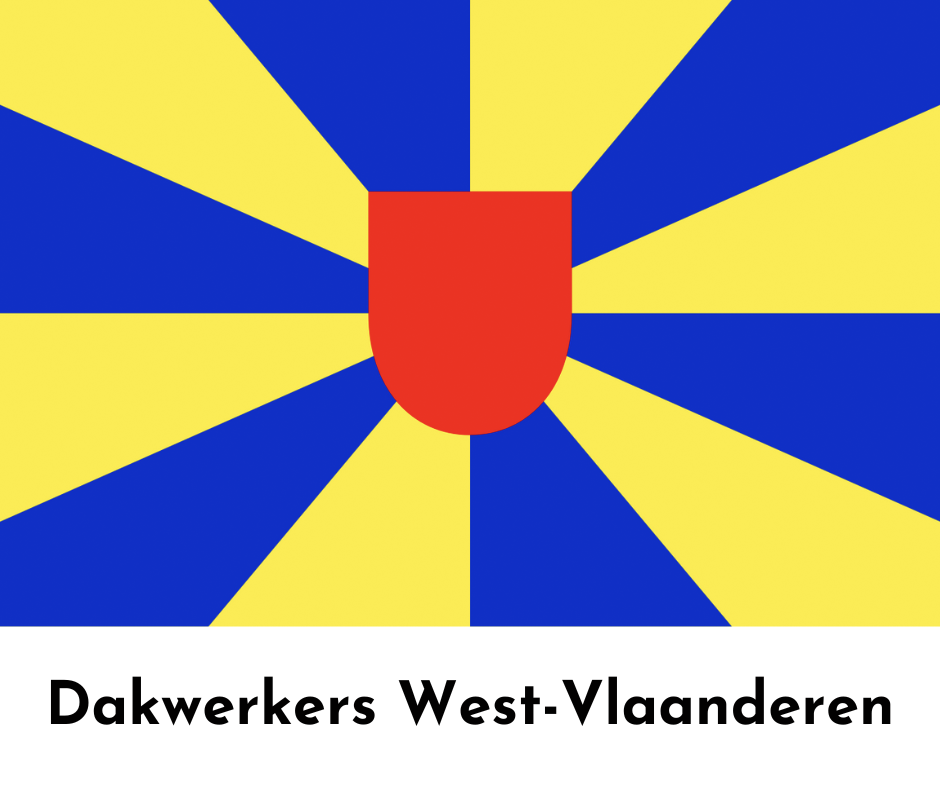Introduction
When it comes to roofing projects, understanding the specific building regulations and codes is crucial. In West Flanders, Belgium, these regulations ensure that roofs are not only aesthetically pleasing but also structurally sound and safe. Whether you're a homeowner looking to replace your roof or a contractor planning a new construction project, navigating the complexities of building codes can be overwhelming. This comprehensive guide will walk you through the essential regulations and codes governing roofing projects in West Flanders, ensuring you have all the information you need to proceed confidently.
Building Regulations and Codes for Roofing Projects in West Flanders
In West Flanders, building regulations are enforced at both the local and regional levels, focusing on safety, sustainability, and aesthetic integration within communities. The overarching authority responsible for these regulations is the Flemish government, which has established guidelines that municipalities must adhere to. Each municipality may have additional rules tailored to their specific environment.
Understanding Local Authorities and Their Roles
Who Enforces Building Codes?
Local municipalities are primarily responsible for enforcing building codes in West Flanders. They handle permit applications, inspections, and compliance checks. It's essential to engage with your local authority early in your project planning stages.
How Do Municipalities Differ?
Each municipality may interpret and implement the guidelines slightly differently based on their unique urban planning needs. For example:
- Ghent may focus more on historical preservation. Bruges might emphasize aesthetic harmony with medieval architecture.
Understanding these nuances can save you time and money later on.
Types of Roofing Projects Covered by Regulations
Residential Roofing Projects
Most residential roofing projects fall under standard building regulations that dictate materials used, structural integrity, drainage systems, and energy efficiency standards.
Commercial Roof Installations
Commercial properties often have more stringent codes due to their size and usage. Special considerations include load-bearing capacities and waterproofing standards.
Renovation vs. New Construction
It's critical to differentiate between renovation projects—where existing structures are modified—and new constructions, which might require entirely different permits and inspections.
Key Components of Building Codes for Roofing
Structural Integrity Requirements
Every roofing project must meet local structural integrity requirements designed to withstand weather conditions typical of West Flanders—from heavy rain to snow loads.
What Are Load-Bearing Requirements?
Load-bearing requirements refer to how much weight a roofing system can support without compromising structural integrity. Understanding this aspect is vital for both safety and compliance.
Material Specifications
Certain materials may be preferred or required in specific municipalities:
- Clay tiles might be encouraged in historic areas. Metal roofs could be favored for their durability in commercial installations.
Energy Efficiency Standards
West Flanders has ambitious energy efficiency goals aligned with broader EU objectives. Your roofing project might need to comply with these standards by utilizing insulation materials or solar panels.
Permits: What You Need to Know
When Is a Permit Required?
Generally speaking, any significant alteration or addition will likely require a permit. Even minor repairs could necessitate documentation if they affect structural integrity or aesthetics.
How Do I Apply for a Permit?
Gather necessary documents (architectural plans, material specifications). Submit your application online or at your local municipal office. Await approval before commencing work—this process can take several weeks depending on complexity.Inspections: Ensuring Compliance Throughout the Project
Why Are Inspections Necessary?
Inspections help guarantee that construction meets all regulatory requirements at various stages of completion—from initial framing through final finishes.
What Types of Inspections Are Common?
- Pre-roof installation inspections Mid-project inspections Final compliance inspections
Be sure to schedule these inspections ahead of time!
Common Mistakes Homeowners Make with Roofing Regulations
Ignoring Local Guidelines: Always check with your municipality. Underestimating Permitting Processes: Start early; it can take longer than anticipated. Overlooking Necessary Inspections: Missing an inspection can halt progress or lead to fines. Using Unapproved Materials: Ensure all materials align with local codes. Not Consulting Professionals: Engage experienced contractors familiar with local regulations.Sustainability Considerations in Roofing Regulations
As environmental concerns grow worldwide, West Flanders emphasizes sustainable practices even in roofing projects:
Use of sustainable materials. Incorporation of green roofs where feasible. Energy-efficient designs aligning with EU directives.FAQs About Building Regulations and Codes for Roofing Projects in West Flanders
Q1: Do I always need a permit for roof repairs?
A1: Not always; minor repairs often don’t require permits, but substantial changes usually do.
Q2: How do I find out what my local municipality requires?
A2: Visit your municipal website or contact them directly; they typically have resources available online regarding building codes.
Q3: What happens if I don’t comply with local regulations?
A3: Non-compliance can lead to fines, required removal of work done without permission, or other legal implications.
Q4: Can I appeal a rejected permit application?
A4: Yes; most municipalities allow appeals but have specific processes outlined that you must follow strictly.
Q5: Are there any financial incentives for using sustainable materials?
A5: Some municipalities offer grants or tax rebates—check locally!
Q6: How long does it typically take to get a building permit approved?
A6: Approval times vary but generally range from 4–8 weeks depending on complexity.
Conclusion
Navigating through “Building Regulations and Codes for Roofing Projects in West Flanders” might seem daunting at first glance; however, understanding the key aspects makes it manageable! Whether you're embarking on renovations or new constructions, being informed about local regulations will not only ensure compliance but also enhance the quality of your roofing project lifecycle—from conception through completion!
By engaging early with local authorities and keeping abreast of current requirements—like energy efficiency standards—you'll not only save Dakdekker Lokaal yourself headaches later but also contribute positively towards community aesthetics as well as environmental sustainability initiatives!
So roll up those sleeves! Armed with knowledge about West Flanders’ distinctive building regulations & codes regarding roofs provides you an edge over any unforeseen challenges ahead!
